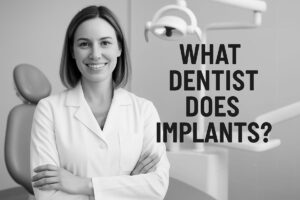This post will help you understand why some people should do not get dental implants right now. We review common risks, medical and oral reasons to wait, and safer alternatives so you can choose wisely.
When to say: “do not get dental implants”
If you have major health problems, active mouth infections, or lifestyle barriers (like heavy smoking or no follow-up care), you may need to say “do not get dental implants” until things improve. Immediate red flags include recent cancer treatment, uncontrolled diabetes, severe gum disease, or lack of access to proper aftercare.
Medical reasons to do not get dental implants
Uncontrolled chronic illness
Uncontrolled diabetes, recent heart surgery, or advanced immune disorders raise the risk of infection and poor healing. If your doctor advises delaying elective surgery, do not get dental implants until your health is stable.
Certain medications
Drugs like bisphosphonates, recent chemotherapy, or high-dose steroids can block bone healing. If you take these medicines, you may be told to do not get dental implants or to consult your medical team first.
Pregnancy and breastfeeding
Elective implant surgery is usually postponed during pregnancy and often during breastfeeding. For safety, most providers recommend you do not get dental implants until after pregnancy.
Oral and bone issues that mean do not get dental implants yet
Insufficient jawbone or untreated gum disease
Severe bone loss or active periodontitis increases implant failure risk. These problems often need grafting or treatment first, so do not get dental implants until gums and bone are healthy.
Severe bruxism (teeth grinding)
Heavy grinding can overload implants and cause breakage or failure. If you grind your teeth, you may need a night guard or other treatment before you do not get dental implants placed.
Lifestyle and cost reasons to do not get dental implants
Smoking and vaping
Nicotine lowers blood flow and raises failure rates. If you smoke or vape, many surgeons advise you to quit before you do not get dental implants to improve success.
High cost or inability to commit to follow-up care
Implants need upfront investment and long-term maintenance. If you cannot afford treatment or follow-up visits, it may be better to do not get dental implants and choose a less permanent option.
Short-term reasons: when to delay and reassess
Recent extractions, active infections, or no access to sedation/aftercare are good reasons to postpone. Delay until infections clear, health stabilizes, or you can secure safe aftercare.
Safer short- and medium-term alternatives
Removable partial dentures: Lower cost and fast, but less stable and less natural feeling. Fixed bridges: Good for short gaps if adjacent teeth are healthy, but requires altering nearby teeth. Implant-supported dentures later: Can be staged—use a denture now and plan implants when conditions allow.
How to make a safe decision
At a proper implant consult expect 3D CBCT imaging, a health review, and a clear timeline. Ask: Do my health conditions raise risk? Can pre-treatment improve my chances? What are alternatives? When in doubt, seek a second opinion.
About Bluegrass Dentistry and when we help
Bluegrass Dentistry in Lexington offers advanced diagnostics (3D CBCT, guided surgery) and evaluates complex cases to decide if implants are safe or if you should do not get dental implants right now. Led by Dr. Seth Chambers, the team plans care, including alternatives and staged approaches.
Next steps
If you’re unsure whether to do not get dental implants, schedule a consult to review health, imaging, and options. If treatment should wait, we can map safer alternatives and a timeline for implants when the time is right. Book an evaluation to get started.




